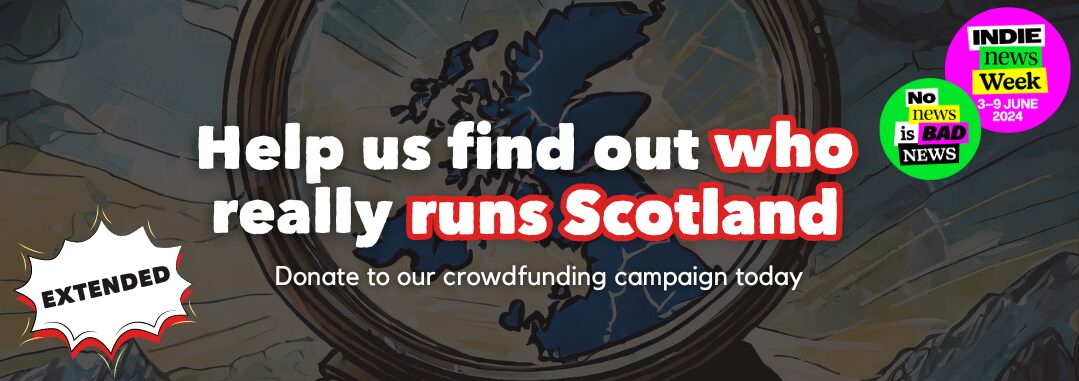
An image alleging that Labour and the Conservatives have formed alliances in Scotland’s councils has been shared across social media in recent months.
The viral image depicts a map of Scotland, highlighting regions where it claims the two parties have formed agreements to “take power”.
Labour and the Tories frequently form alliances to take power in councils across Scotland.
Social media graphic

Ferret Fact Service looked at this claim and found it Half True.
Evidence
The graphic has been shared numerous times on X, and suggests that Labour and the Conservatives are or have been in collaboration in local councils in Moray, Fife, Stirling, Edinburgh, South Ayrshire and West Lothian.
When the last Scottish council elections took place in May 2022, the SNP and The National newspaper suggested Scottish Labour had done deals with Conservatives in various local authorities.
But did Scottish Labour and the Scottish Conservatives form alliances to take power in Scottish councils?
Coalitions and minority administrations in Scotland’s councils are historically common. They can effectively lock out the party who received the largest number of seats.
But before the last council election, Scottish Labour leader Anas Sarwar ruled out formal coalitions with other parties, after controversial coalitions were formed in some councils including Aberdeen.
Moray council was governed in a minority administration by the SNP until the Conservative became the largest party after the May 2022 election. Both the Conservatives and the SNP, who had previously led the council, put forward proposals to run minority administrations. But the Conservatives’ plan was voted through after Labour councillors abstained.
Despite the SNP gaining the largest number of seats in Fife (34), a minority Labour administration of 20 was voted through with the support of Liberal Democrat and Conservative councillors.
After the Stirling local elections in 2022, the SNP ended up with the largest number of seats, with 8, followed by the Conservatives, who won 7 and Labour on 6. Labour formed a minority administration, with support from Conservative councillors.
The SNP remained the largest party after local elections in Edinburgh, but Labour formed another minority administration when it secured votes from the Liberal Democrats and Conservatives, after installing councillors from both parties in key committee posts.
The move was controversial, with two Labour councillors abstaining from the vote in that case.
In South Ayrshire, the Conservatives were the largest party after the election in May 2022. Initial discussions were had between the SNP and Labour to continue a working relationship between the parties that allowed the SNP to run a minority party administration, but these talks broke down. The Conservatives were able to form a minority leadership after Labour councillors abstained in the vote during a council meeting.
Labour, however, formed a minority administration in West Lothian with 12 seats, despite the SNP gaining the largest number of seats (15), after gaining support from the Conservative councillors.
Local council elections in Scotland are run differently from national elections to the Scottish or UK parliaments.
They use a system called single transferable vote (STV) where, instead of just having to vote for one candidate, each voter is able to rank as many of the candidates in their ward as they want in order of preference. Each ward can have multiple council seats to be filled.
The system is intended to give greater representation and choice for voters, and is more proportional than systems in the UK and Scottish parliaments.
In councils, it reduces the likelihood of one party getting an overall majority of the seats, which aims to encourage parties working together.
Ferret Fact Service verdict: Half True
Councillors from Scottish Labour and the Conservatives, alongside independents and the Liberal Democrats did work together to vote through minority administrations in some councils. This meant that the SNP was not able to form the council leadership in a number of areas.
But this does not mean that Labour and the Conservatives share power in these councils.

Ferret Fact Service (FFS) is a non-partisan fact checker, and signatory to the International Fact-Checking Network fact-checkers’ code of principles.
All the sources used in our checks are publicly available and the FFS fact-checking methodology can be viewed here.
Want to suggest a fact check?
Email us at factcheck@theferret.scot or join our Facebook group.
Photo credit: iStock/evenfh














